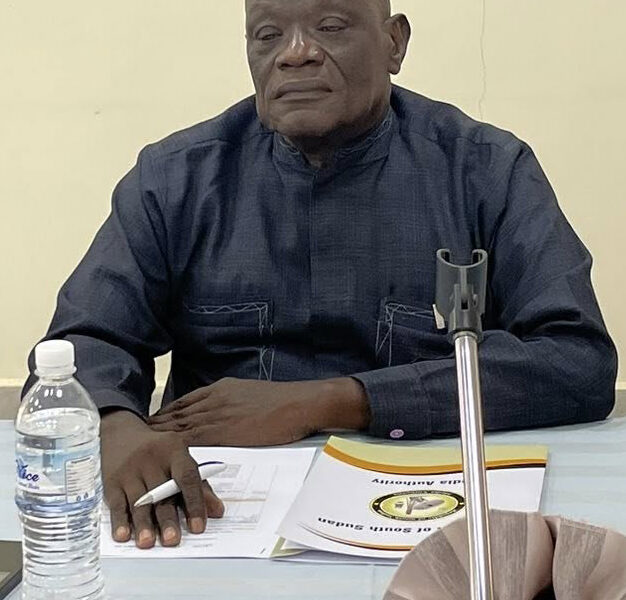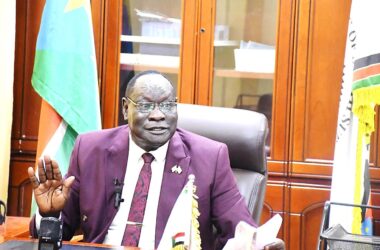By Alan Clement
The Director General for Media Compliance at the South Sudan Media Authority has warned that cyber threats like impersonation, data theft, and AI misuse are eroding journalism and public trust.
Speaking at a media forum in Juba organized by the Union of Journalists of South Sudan (UJOSS), the Director General, Sapana Abuyi raised concern over the growing impact of cyber threats on journalism.
He noted that while technology offers many benefits, it has also become a serious threat to journalism. “Criminals are using fake social media accounts to impersonate journalists and credible media houses, damaging reputations and scamming the public,” he said.
He noted that nearly eight such cases had been reported over the past three months alone to the Media Authority empathizing that such pages were taken down only to be quickly recreated.
The forum, held under the theme “Role of Journalists in Promoting Justice in South Sudan,” brought together media stakeholders to discuss the press’s role in advancing justice and tackling the challenges facing journalists.
Abuyi revealed that the Media Authority, in collaboration with the National Communication Authority’s Computer Incident Response Team (CIRT), is actively addressing such cybercrimes to protect journalists and media institutions.
“Our CIRT team has the capacity and constant contact with the media. When such cases come to us, we file them with CIRT to protect your image and data,” he added, urging journalists and media outlets to be cautious of fake online profiles claiming to represent them.
The Director General also cited the growing influence of artificial intelligence, which he said is being misused to generate fake images and videos.
“AI can now create a human being like you, resemble you, and speak like you. You may see a picture that looks like Donald Trump, but it is not him. This is the situation we are in today,” he explained.
He warned that misinformation powered by AI poses a significant threat to truth and accountability in the media. While acknowledging the benefits of technology in expanding access to information, he also cautioned that it has exposed society especially young people to harmful content such as pornography and false information.
“Because we are not in control, our children are exposed to all sorts of things online. Facebook has become anti-journalism; it is killing our journalism. It’s undermining our profession,” added Abuyi.
He urged social media users to act responsibly, warning that content shared online can remain accessible long after it is posted even beyond one’s lifetime. “We, as regulators, advise: if you are using social media, use it responsibly. What goes online can remain long after you’re gone,” he stressed
Abuyi urged journalists to uphold professional standards and ensure accuracy in their reporting to help rebuild public confidence in the media.
“We must improve the quality of what we report. What you write as a journalist is taken as fact. If we lose that credibility, then journalism itself is at risk,” he emphasized.
On legal safeguards for the media, Advocate Elijah Mayual urged journalists to seek pre-publication legal advice to avoid defamation risks stating; “Many of you think the role of lawyers is only in court,” he said.
“A lawyer can help you before publication by reviewing an article that might be defamatory. I can tell you this article doesn’t go on, and if it does and someone complains, I will defend you,” he added.
The forum’s discussions highlighted ongoing concerns around media safety, misinformation, and legal risks, as journalists in South Sudan continue to navigate a complex and fast-evolving information landscape.



